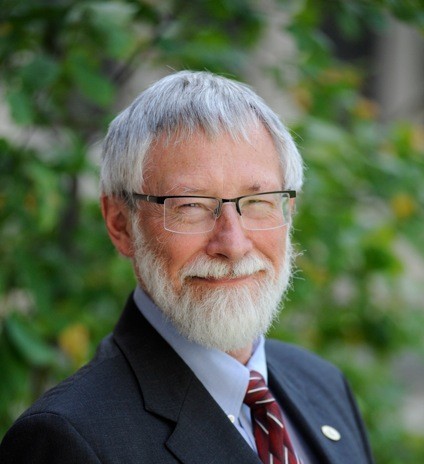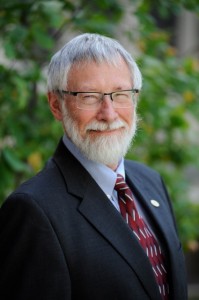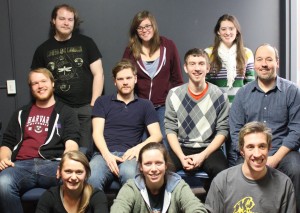 March 6, 2012 – Communications & Media Students Join with Local Radio Station IGNITE 107FM to Help “Ignite Change” – Communications and Media students from Canadian Mennonite University have produced a series of radio spots in two unique formats to help inspire change in teens and young adults as part of Ignite 107FM’s “Ignite Change” campaign. The Golden West radio station will broadcast the CMU students’ radio spots from March 5 to May 20, 2012.
March 6, 2012 – Communications & Media Students Join with Local Radio Station IGNITE 107FM to Help “Ignite Change” – Communications and Media students from Canadian Mennonite University have produced a series of radio spots in two unique formats to help inspire change in teens and young adults as part of Ignite 107FM’s “Ignite Change” campaign. The Golden West radio station will broadcast the CMU students’ radio spots from March 5 to May 20, 2012.
“CMU’s media workshop class took on the challenge of understanding the station’s target audience of 15- to 35-year-old males and developing original content. It’s been a real privilege to partner with the station and Kyle Rudge, IGNITE’s Program Director. Getting to this point, where the radio spot series have made it to air, is very exciting for everyone involved,” says CMU Instructor David Balzer, who teaches Communications and Media courses and produces CMU’s weekly radio show Sunday@CMU.
Students worked in two production teams. One group called its project “Let’s Talk;” the other designed a series called the “CMU Skylab.”
The “Let’s Talk” team included media students Amy Beckwith, Evelyn Kampen, Cameron MacDonald, Laura Tait, and Matthew Veith. Their goal was to ignite change through the act of listening to others. The five students took to the frosty winter streets of Winnipeg with only a provocative sign reading “Let’s Talk” and a microphone. One of the passersby, who stopped to talk, later remarked: “Thank you for listening. Not many people take the time to talk to me!”
What makes the interviews unique is that the interviewers have no questions. “This experience reminds me to take time to listen,” says Veith. “I’m always hurrying to places. This activity has forced me to pay attention to what’s going on in other people’s lives. It really is eye-opening.”
The “CMU Skylab” radio spot series was produced by Daniel Friesen, Thomas Krause, Erin Olsen, and Alec Schaefer. The series is hosted by a “humorous alien scientist” named Dr. Karl from his UFO-like laboratory. The host, being concerned with the notion of social change on Earth, sends his earthling assistants out to interview people who actively give of themselves to make a difference in the lives of those around them. He enjoys adding his own brand of witty banter as commentary throughout the spots.
Kyle McDonald, author of “One Red Paperclip,” states in an audio interview with earthling and CMU student Daniel Friesen, “If you do something, and continue on that path, eventually something great will come of it… it’s easy to do and the sacrifice is really small.”
The student team feels that Kyle MacDonald’s experience of trading up from a paperclip to owning a house in Saskatchewan captures the spirit of the Ignite Change campaign, which encourages listeners to believe that starting small can lead to a big difference.
Ignite 107FM will broadcast the Let’s Talk and CMU Skylab series from March 5 to May 20, launching a new spot each Monday morning at 8:20 am during The Hype morning show. The featured radio spot will then run for one week, aired four times a day at a variety of times.
Tune in to Ignite 107FM, or visit ignite107.com or media.cmu.ca to hear the Let’s Talk and CMU Skylab radio spot series.
“Let’s Talk” Series
Let’s Talk – Perry
[audio:http://www.cmu.ca/media_archive/wp-content/uploads/2012/03/sTalk_Perry_Final.mp3|titles=LetsTalk_Perry_Final]
Let’s Talk – Whitney
[audio:http://www.cmu.ca/media_archive/wp-content/uploads/2012/03/sTalk_Whitney_Final.mp3|titles=LetsTalk_Whitney_Final]
Let’s Talk – Rex
[audio:http://www.cmu.ca/media_archive/wp-content/uploads/2012/03/sTalk_Rex_Final.mp3|titles=LetsTalk_Rex_Final]
Let’s Talk – Natalie
[audio:http://www.cmu.ca/media_archive/wp-content/uploads/2012/03/sTalk_Natalie_Final.mp3|titles=LetsTalk_Natalie_Final]
Let’s Talk – Meagan
[audio:http://www.cmu.ca/media_archive/wp-content/uploads/2012/03/sTalk_Meagan_Final.mp3|titles=LetsTalk_Meagan_Final]
Let’s Talk – Idressa
[audio:http://www.cmu.ca/media_archive/wp-content/uploads/2012/03/sTalk_Idressa_Final.mp3|titles=LetsTalk_Idressa_Final]
Let’s Talk – Christopher
[audio:http://www.cmu.ca/media_archive/wp-content/uploads/2012/03/sTalk_Christopher_Final.mp3|titles=LetsTalk_Christopher_Final]
Let’s Talk – Brenna
[audio:http://www.cmu.ca/media_archive/wp-content/uploads/2012/03/sTalk_Brenna_Final.mp3|titles=LetsTalk_Brenna_Final]
“CMU SkyLab” Series
CMU Skylab – Kyle MacDonald
[audio:http://www.cmu.ca/media_archive/wp-content/uploads/2012/03/CMU-SKYLAB-Kyle-MacDonald.mp3|titles=CMU SKYLAB – Kyle MacDonald]
CMU Skylab – West Broadway Youth Outreach
[audio:http://www.cmu.ca/media_archive/wp-content/uploads/2012/03/CMU-SKYLAB-West-Broadway-Youth-Outreach.mp3|titles=CMU SKYLAB – West Broadway Youth Outreach]
CMU Skylab – Manitoba House
[audio:http://www.cmu.ca/media_archive/wp-content/uploads/2012/03/CMU-SKYLAB-Manitoba-House.mp3|titles=CMU SKYLAB – Manitoba House]
Golden West Radio is “Community Service Radio” serving small and medium-sized communities across Manitoba, Saskatchewan, and Alberta with a network of AM and FM radio stations and Online Community websites.
A Christian university in the Anabaptist tradition, CMU offers undergraduate degrees in arts, business, humanities, music, sciences, and social sciences, as well as two graduate degree programs. CMU has over 1,700 students, including Menno Simons College and Outtatown students, and is a member of the Association of Universities and Colleges of Canada (AUCC).
For further information on Ignite Change radio spot series, contact student project representatives:
Let’s Talk – Laura Tait, ltait@student.cmu.ca
CMU Skylab – Erin Olsen, OlsenEr@student.cmu.ca
Release prepared by:
CMU Communications & Media Student Evelyn Kampen



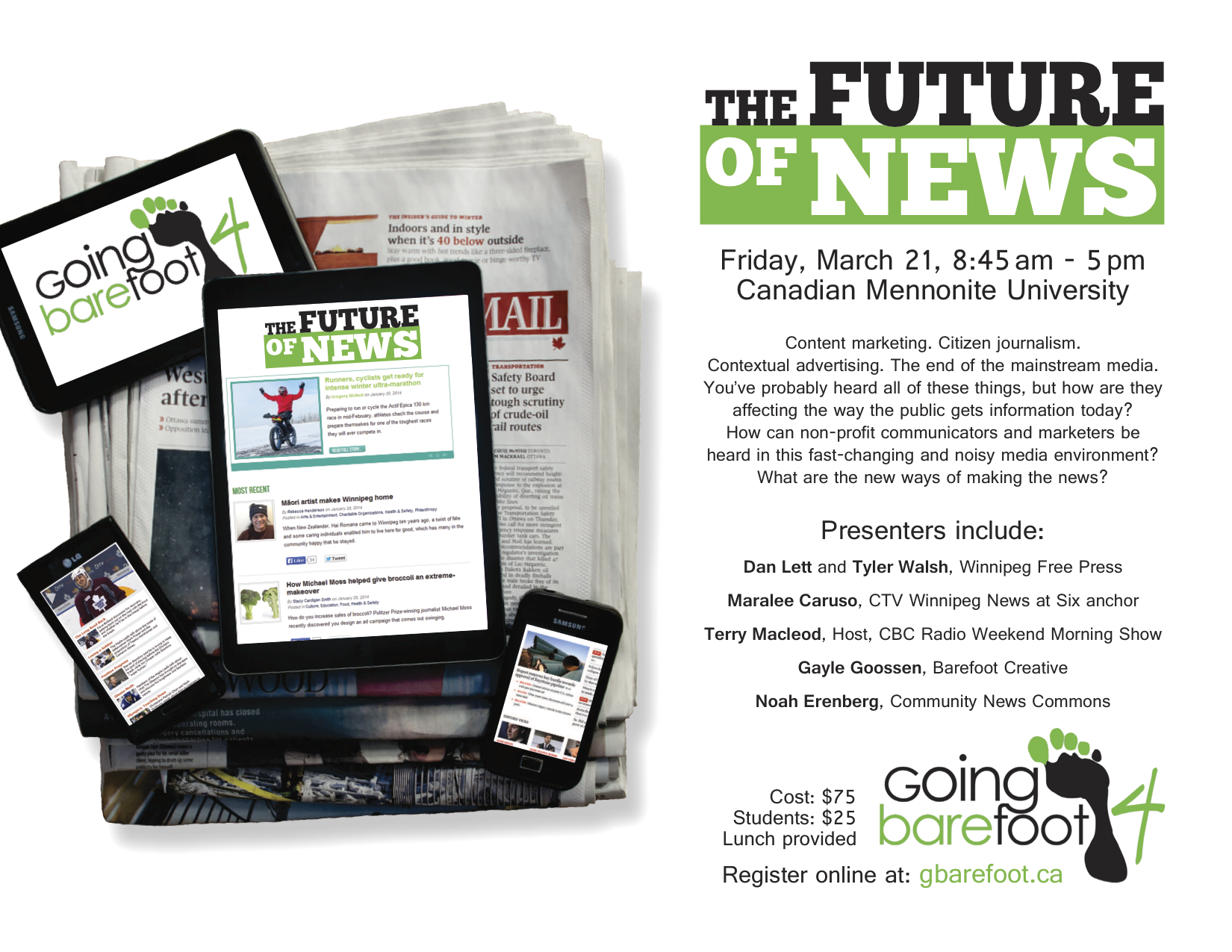

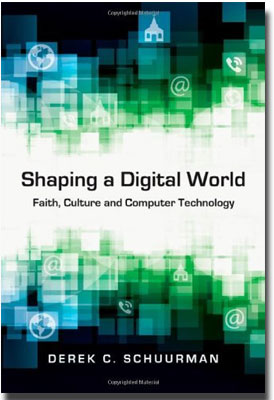

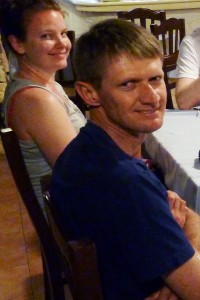
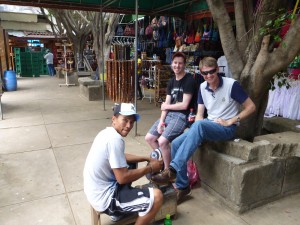
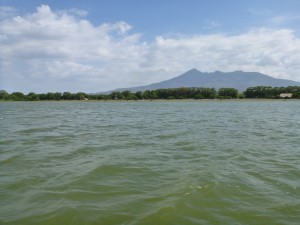
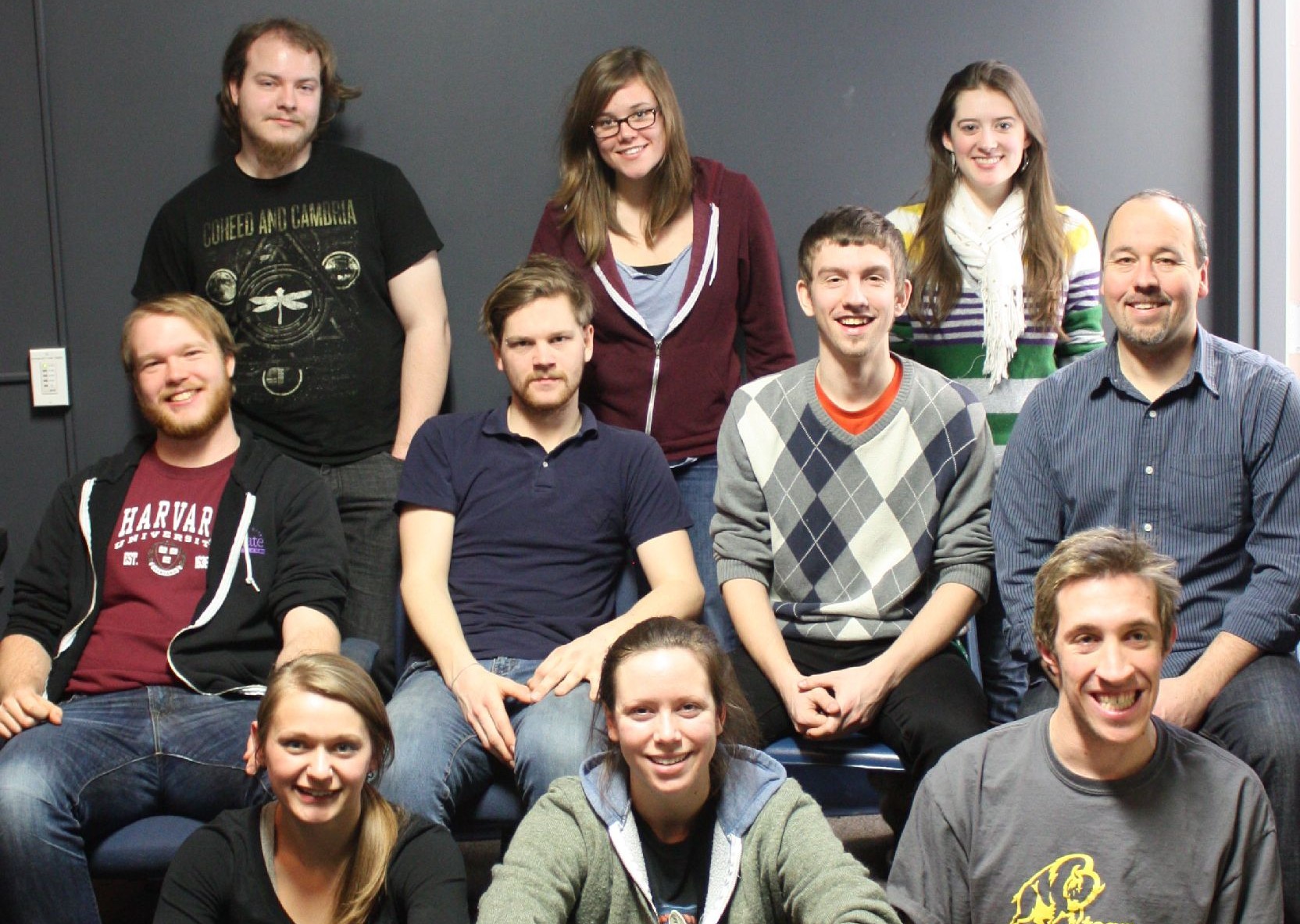
 March 6, 2012 – Communications & Media Students Join with Local Radio Station IGNITE 107FM to Help “Ignite Change” – Communications and Media students from Canadian Mennonite University have produced a series of radio spots in two unique formats to help inspire change in teens and young adults as part of
March 6, 2012 – Communications & Media Students Join with Local Radio Station IGNITE 107FM to Help “Ignite Change” – Communications and Media students from Canadian Mennonite University have produced a series of radio spots in two unique formats to help inspire change in teens and young adults as part of 